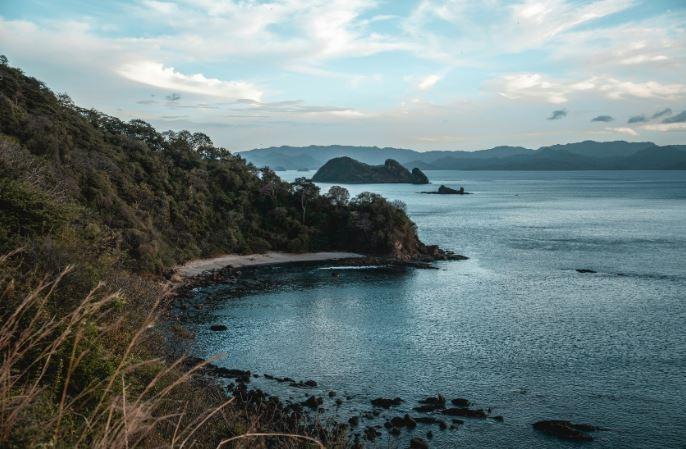Ecotourism, a form of responsible travel to natural areas that focuses on environmental conservation, is growing by leaps and bounds. The global ecotourism market is expected to reach $823.4 billion by 2033. Also, an estimated 33% of travelers chose sustainable accommodations over the past year.
Ecotourism benefits local communities and fosters environmental and cultural awareness. It prioritizes minimizing negative impacts on the environment and local communities while offering educational and enriching experiences for visitors
Top Ecotourism Destinations
For many within the tourist industry, sustainability is a top priority. Whether it’s cruising through Norway’s Northern Lights with zero emissions and sustainable ship technologies, participating in a hands-on mangrove restoration project or staying at the country’s first carbon positive hotel, travelers can immerse themselves in meaningful, eco-friendly experiences.
Havila Voyages, a premier eco-focused cruise line, invites travelers from around the globe to explore Norway’s historic routes in a sustainable way. With regular departures throughout the year, the voyage line now offers four modern and sustainable ships with a goal to eliminate carbon emissions completely by 2030. Havila Voyages’ fleet are loaded with the largest battery packs ever installed on a passenger ship, allowing the vessels to sail for four hours straight with zero emissions. The battery packs allow Havila to visit vulnerable fjords, such as the world heritage Geirangerfjord, without worrying about environmental issues.
At the newly opened Westin Bora Bora Resort & Spa guests enjoy comforts and amenities surrounded by modern Polynesian style. The luxurious resort places conservation as core part of the experience. At the heart of its sustainability efforts is the on-property Eco Center Bora Bora, originally founded in 2000 in partnership with the Direction of the Environment of French Polynesia. Now fully restored and expanded, the Center is once again rehabilitating sea turtles and educating guests on marine conservation. Throughout the year guests can join the Eco Center’s marine biologists to feed sea turtles, assist with habitat upkeep and learn about long-term reef preservation.
Mayakoba goes to great lengths to protect the surrounding nature, mangroves and wildlife habitats through careful land planning and the preservation of open space through a nature-forward, low-density design. Instead of situating the resorts directly on the water, which would increase water pollution and endanger many species of flora and fauna, Mayakoba’s developers positioned the resorts off the beach to minimize environmental impact. Rather than driving between properties, guests travel between resorts via Mayakoba’s intricate lagoon system and picturesque canals, where the destination even provides daily ecotours through the pristine waterways to teach guests about the endemic species that call this region home.
Ambergris Cay, an exclusive, private year-round island resort, boasts 1,100 acres of mostly untouched land, offering a secluded, naturally beautiful island landscape. The private island includes more than 150 plant species such as cacti, mangroves and native grass and shrubs, barrier dunes, freshwater sinkholes and coastal trails for guests to explore and enjoy. Weaving sustainability into the private island resort’s exclusive features and services, Ambergris Cay is home to an onsite solar farm used as an eco-friendly power source.
Recognized as the world’s first vertical destination, lebua at State Tower in Bangkok not only offers the height of luxury travel, but also remains deeply rooted in sustainability efforts. This five-star hotel integrates cutting-edge carbon and energy efficiency technologies, prioritizing local, environmentally certified and fair-trade suppliers to minimize its ecological footprint. In its waste management practices, the hotel has adopted a circular economy model, focusing on recycling, reusing and composting to reduce waste. These efforts combine luxury and responsibility, allowing guests to experience the future of luxury travel.
Bordering a UNESCO World Heritage Site with more than 363,000 acres of protected land and sea, Costa Elena works to preserve and protect its local environment. Costa Elena invests in the regeneration of the Tropical Dry Forest ecosystems, for which only 2% are estimated to remain, preventing illegal logging, hunting and man-made wildfires and bringing endangered species like jaguars and the yellow necked parrot from the verge of extinction back to healthy numbers. They also invest in the protection of local beaches (earning a “Blue Flag” for five beaches) and the construction and maintenance of a community recycling center that is now managed by a group of locals.
Isla Bella Beach Resort, a luxurious, eco-driven beachfront destination, is changing the future of the local Florida Keys ecosystem. The resort has eliminated single-use plastics by installing water stations, providing reusable aluminum bottles and using sustainable takeout service ware. In partnership with the Conch Republic Marine Army, Isla Bella regularly organizes beach cleanups as part of Mangrove Restoration and has donated $85K for a boat to aid in local restoration efforts. The resort maintains beehives to support pollination, provide fresh honey for its dining outlets, and offer guests an educational experience.
The Weston, a luxury boutique hotel concept, meaningful connections are at the center of everything they do. Set on 50 acres of land, The Farm’s greenscape and hotel are committed to sustainable agricultural practices. The team’s year-round seeding plan uses ecologically restorative farming techniques, resulting in all produce being free of pesticides, synthetic fertilizers and herbicides. Vermont is home to environmentally-friendly outdoor adventures and also to world-class artists, collectors, makers and purveyors of myriad remarkable goods.
Considered to be the country’s first carbon positive hotel, Populus sets an entirely new standard in the world of sustainable travel. Carbon emissions were significantly reduced in Populus’ development stage, thanks to sustainable construction techniques including the use of low-carbon concrete, an insulated façade system and GFRC rainscreen, intentionally not having onsite parking. All aspects of the hotel – from its innovative architecture and construction features to its upcycled and consciously-sourced interiors – are designed to drastically lower and offset its carbon footprint. Thanks to Populus’ One Night, One Tree program in partnership with the National Forest Foundation, the hotel plants one tree for every night’s stay – locally in Colorado – inviting guests to play a role in bettering forests.

